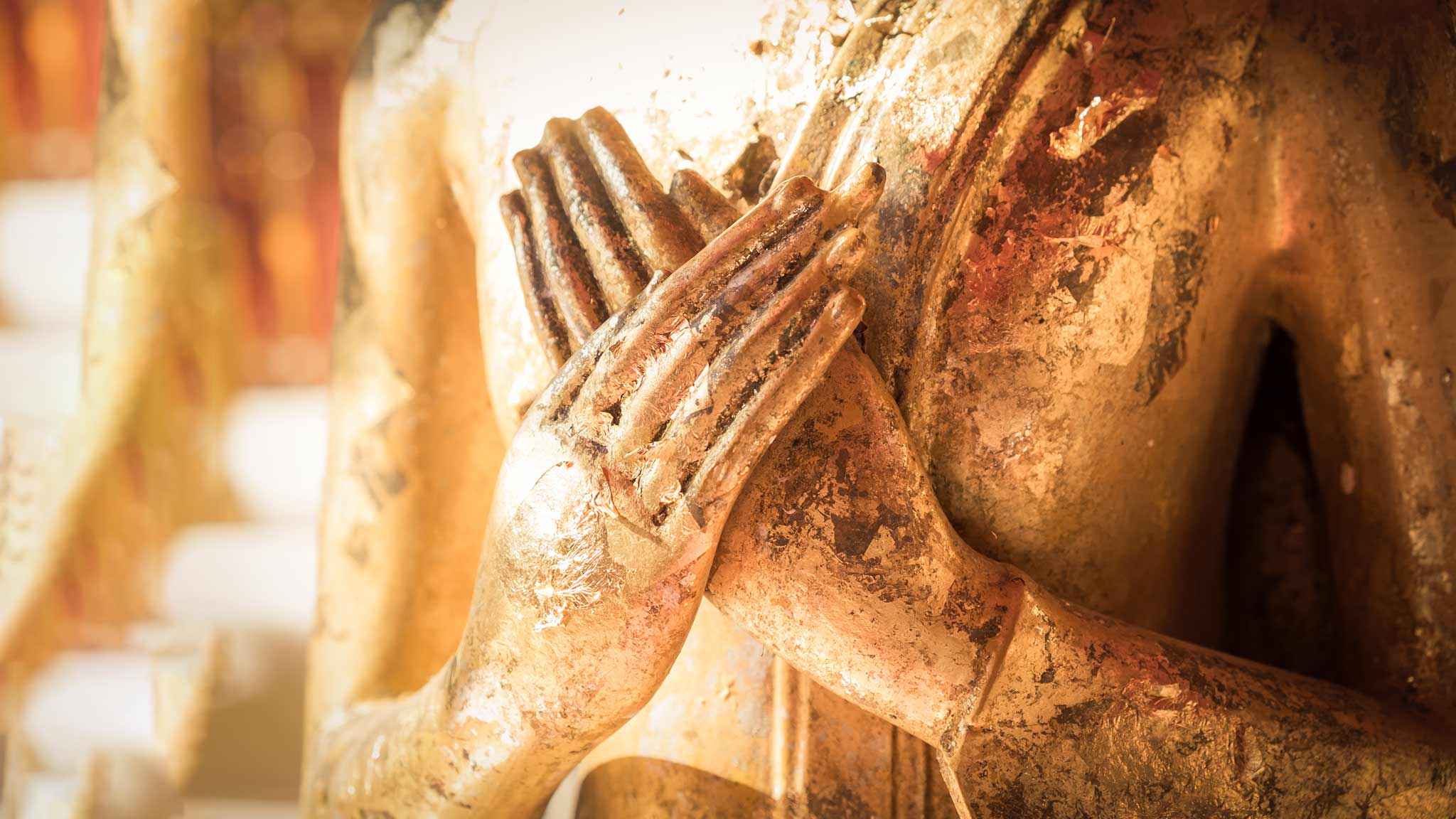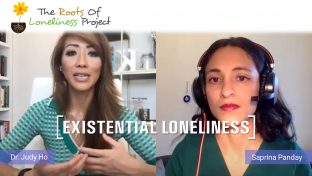A Buddhist Perspective: Fully Embracing Loneliness And Isolation

The general approach one gets when following the Buddhist philosophy is to learn to stay put with one’s feelings, whatever they may be, and observe them with equanimity — and that includes loneliness.
- The community that is created as a result of a shared common faith has been often regarded as the antidote to loneliness.
- Spirituality and belief can be a source of strength, comfort, and hope during difficult times, bringing with them a sense of community and belonging.
- The Buddhist perspective of observing one’s feelings and sensations with equanimity is a tool with which to anchor yourself whenever your mind becomes overwhelmed.
Struggling with loneliness or having a mental health crisis?
- Suicide Prevention Lifeline: 1-800-273-TALK (8255); Deaf or hard of hearing dial 711 before the number or connect via online chat
For a long time, I believed that there was a way to escape loneliness through a spirituality-based approach.
Traveling alone to Buddhist meditation retreats in Thailand, Burma, France, Nepal, or India, I would sit in meditation for days, hoping to conquer my loneliness and the anxiety it caused — once and for all.
But with nothing to distract me from myself — no entertainment, technology, or communication with the outside world — I only counted the hours until I could leave.
The avalanche of feelings, loneliness, and anxiety erupting through me during meditation suddenly made me desperate to break free from the escape I thought I needed.
It took me many years to finally understand that loneliness and isolation cannot be evaded — and as Buddhism teaches, nor should they be.
Like all other feelings we’ll encounter during our lifetimes, loneliness will come and go.
I’ve found that this state of mental calmness can be a really useful tool for providing an anchor for myself whenever I feel overwhelmed.
While religion, in general, can help those who feel lonely, there are specific Buddhist methods I’ve found to be exceptionally useful if you’re struggling with loneliness.
How Religion Can Ease Loneliness
Authors, scholars, and poets have pondered loneliness for centuries. It is natural to desire an escape from all-consuming feelings of loneliness whenever they arise.
A common outlet that many people turn to is their faith, religion, or spirituality.
Throughout history, a belief in something larger than ourselves seems to be what drives humans forward — regardless of their culture or background.
In fact, a study on older adults revealed that religious attendance leads to more social integration and greater social support, decreasing a person’s loneliness.
The same holds true for young people of faith as well, although a survey conducted by Pew Research found that fewer than 30% of millennials attend religious services at least once per week.
But how do we go about fostering the same effect through Buddhism as we’re trying to overcome feelings of loneliness or isolation?
The Buddhist Approach To Loneliness: Observe And Embrace
If you’ve been unable to escape loneliness despite trying various religious traditions, you’re not alone.
With time and experience, I discovered three lessons from my Buddhist practices have been especially helpful.
- First, learn to observe your loneliness.
In Burma, I attended a forest meditation retreat whose technique required me to do everything in slow motion so that I could observe all the things happening within my body and mind.
Beginning at 4 a.m. and lasting until I went to bed at 8 p.m., I walked, ate, and even took showers in slow motion.
Throughout this practice, I was immersed in nothing more than being.
Although I experienced only glimpses of it, there were moments when I forgot that I was lonely.
Instead, I was able to observe what loneliness looks and feels like — as though it were an entity somehow completely separate from me.
Every time I feel lonely now, I’m aided by that same idea, seeing loneliness as something that’s outside of myself but still a part of me.
The next time you feel lonely, you might try observing it in a similar way through this easy practice.
- Second, embrace loneliness for what it offers you.
When I moved to a new place in California and set out on a job hunt, my loneliness hit an all-time high.
I tried to resolve it by engaging myself in many creative projects, only to realize that loneliness never really left my side.
But the Buddhist way taught me another perspective: Why does it have to be resolved at all?
If you consider it closely, there is much we can gain from loneliness. It gives us the ability to empathize and understand others, and fosters a desire to connect and create meaning in the world.
So the next time you feel lonely, think of the ways it can actually benefit your life — and embrace it.
- Third, attend a silent meditation retreat.
Without experiencing the structure and rigid discipline of a Buddhist retreat, I would not be able to understand loneliness with such depth.
Although I admit that I tried to run away many times and very often begged my teachers to let me go, the one thing that kept me tethered was witnessing those around me who remained steadfast.
During the last day of the retreat, we all bonded over how difficult a task it was to stay put, but also how we each made a difference to one another simply by remaining in place.
So if you need motivation and community, albeit a silent one, I would strongly recommend joining a retreat — if even only for a few days.
Closing Thoughts
For me, the Buddhist perspective of observing one’s feelings and sensations with equanimity has given me a tool with which to anchor myself whenever my mind becomes overwhelmed.
Every time I feel lonely, anxious or isolated, I am grateful that I know how to manage it.
If you are wondering what it feels like to embrace loneliness through Buddhism, take the plunge and see for yourself. I’m sure you’ll have an enlightening experience you won’t soon forget.
Editor’s Note: This article is part of The Roots Of Loneliness Project, the first-of-its-kind resource that comprehensively explores the phenomenon of loneliness and over 100 types we might experience during our lives.
Find Help Now
If you’re struggling with loneliness and isolation, we’ve put together resources to meet you wherever you are — whether you want someone to talk to right now, or are looking for longer-term ways to help ease your loneliness.
- Suicide Prevention Lifeline: 1-800-273-TALK (8255); Deaf or hard of hearing dial 711 before the number or connect via online chat
- Resources & Emotional Support For Loneliness
- Volunteer & Pet Adoption Opportunities






